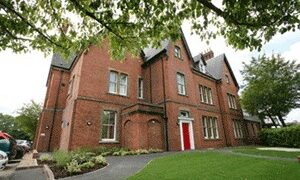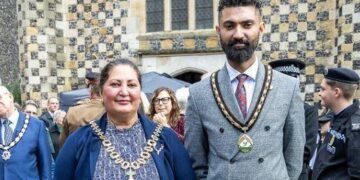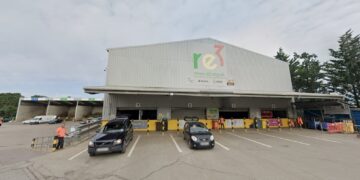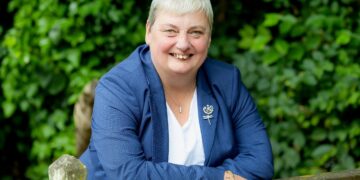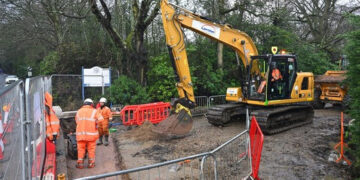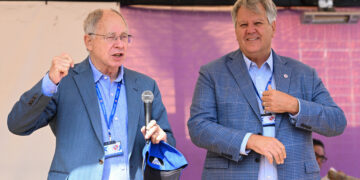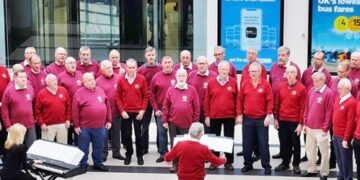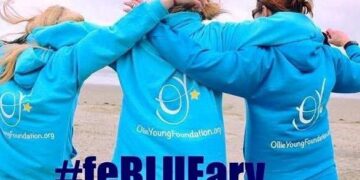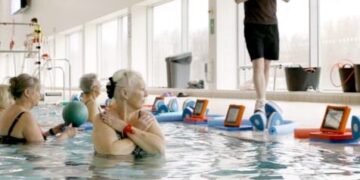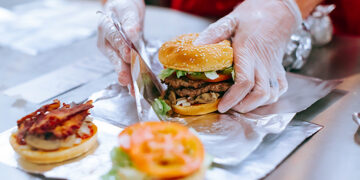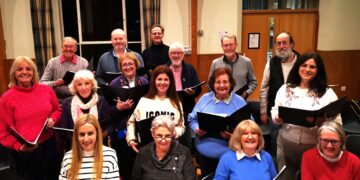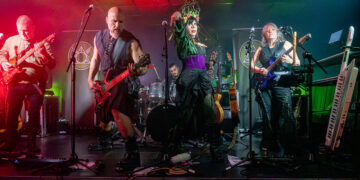A CAFE making a difference has opened its doors in Wokingham.
The Kimel Cafe, created by the Kimel Foundation, provides workplace training for young people with autism.
It was founded by Nic Lander, who has three neurodivergent daughters. He created the foundation over concerns about the number of people with autism in employment.
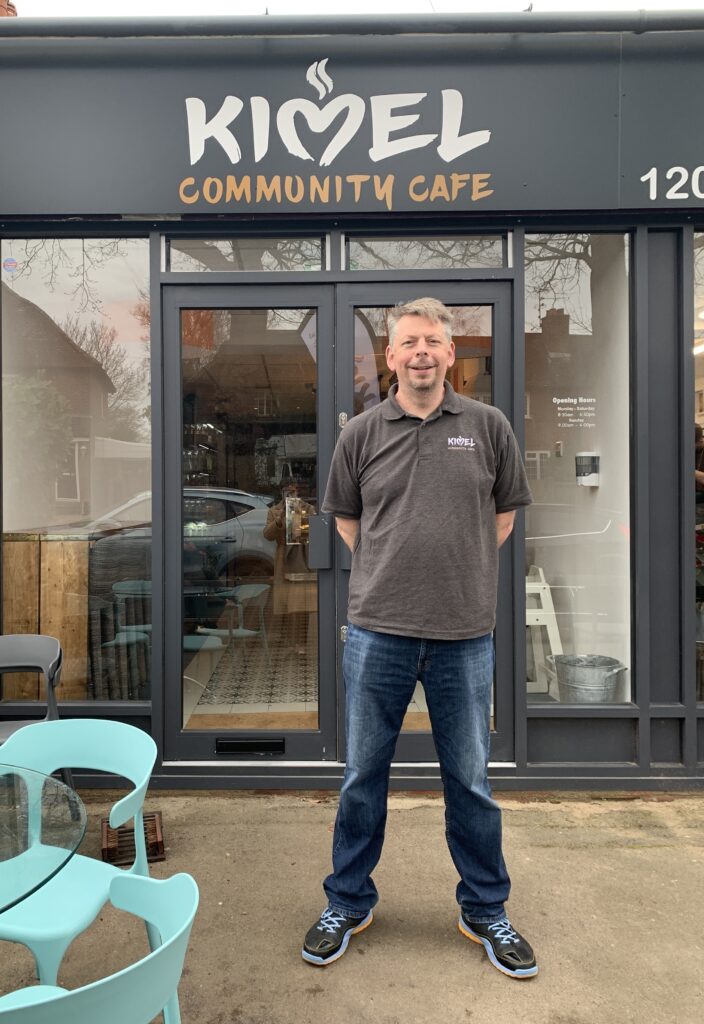
In 2016, the National Autistic Society found that only 16% of autistic adults are in full-time paid employment.
But he said around 70% do want a job.
Mr Lander now has a team of three full-time, and three part-time young people running the cafe on Evendons Lane.
The aim is to help employees with social anxiety, increase their skills, and help them find future employment, Mr Lander said.
He chose the suburban location for its quieter, community feel as part of this, instead of a busier town centre spot.
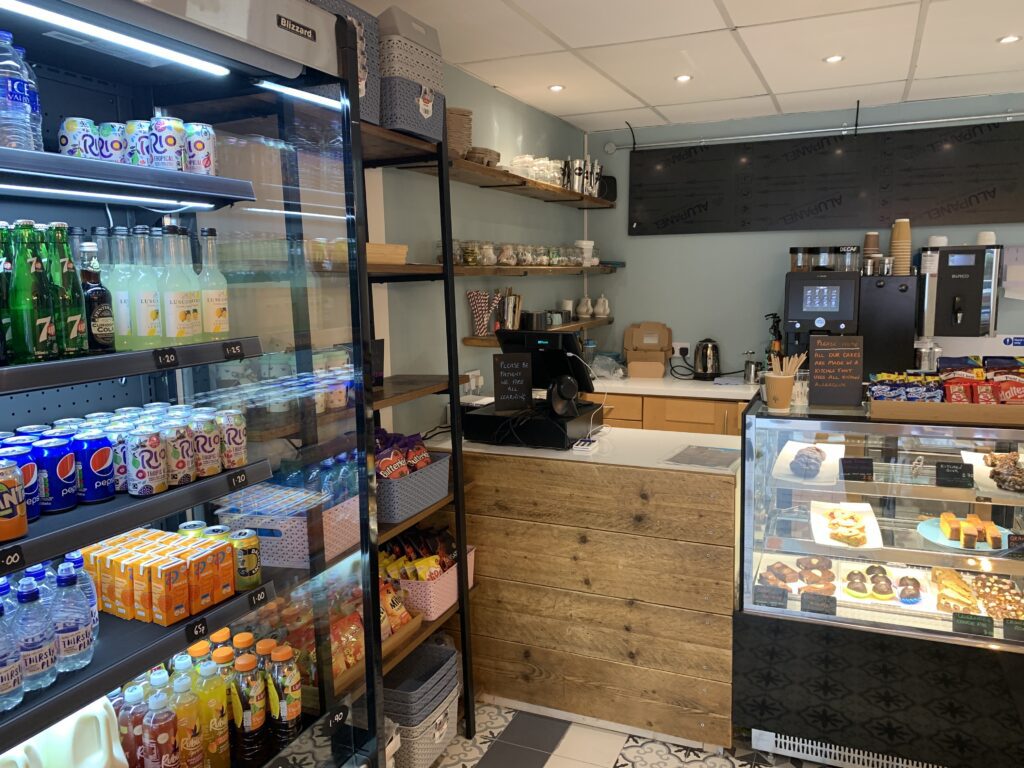
The premises has been kitted out in the most environmentally-friendly way possible, Mr Lander explained. This included collecting the duck egg blue paint from a recycling scheme, and up-cycling the tables and chairs.
Some of the other equipment and fittings were donated by businesses in the area.
The cafe serves its own “Kimel Imagination” blend of coffee — a mix of Columbian and Vietnamese beans — and there is a Brazilian mix for decaf too.
The cakes are made by his eldest daughter, Rachel, and the team are currently experimenting with a hot food menu for lunch.

They hope to launch this in the coming weeks.
Mr Lander said that there has been a great response from Evendons residents since the cafe opened.
“We’ve already got our regulars,” he said. “People want to support the project. They like what we are doing and why. Enjoying the coffee is a massive bonus.”
Mr Lander said that all of the young people who have worked with the Kimel Foundation see a positive change, and hopes to show Wokingham Borough Council the impact that his organisation is having.
“We were told to be bold, and we are,” he said.
At the back of the cafe, there is a private training area for young people.
It includes a kitchen, where those supported by the Kimel Foundation will be able to learn practical, home cooking skills.
“At school they learn how to bake cakes,” Mr Lander said. “But you can’t live off cake.
“We will be doing the basics — liveable food like breakfasts, scrambled egg, sausage and mash, how to cook pasta. These kinds of things.”
And this can also be done from home. The foundation has secured support from Coventry, London South Bank and Leicester universities to launch a virtual reality (VR) training ground.
It will mean that young people will be able to access the kitchen from the comfort of their home, and practice their food preparation.
Virtual reality sessions will also explore a range of challenges, including danger awareness. Sessions such as these will simulate someone crossing a road and being encouraged to stop, look, and listen before they do.
The universities will analyse data collected from the VR sets, including wearer heart rate, to help the foundation understand how its young people are reacting to the challenges.
Mr Lander explained that it is important for the Kimel Foundation to innovate in its support for neurodivergent people.
The foundation already uses specialised software to track each employees’ outcomes on a monthly basis.
This, he said, helps to quantify the impact that the organisation is having on young people’s lives.
The cafe is open from 8.30am to 4.30pm, Monday to Friday, and 9.30am to 4pm at the weekends.
It also has outdoor seating and bicycle racks.
For more information, visit: kimelcafe.com

